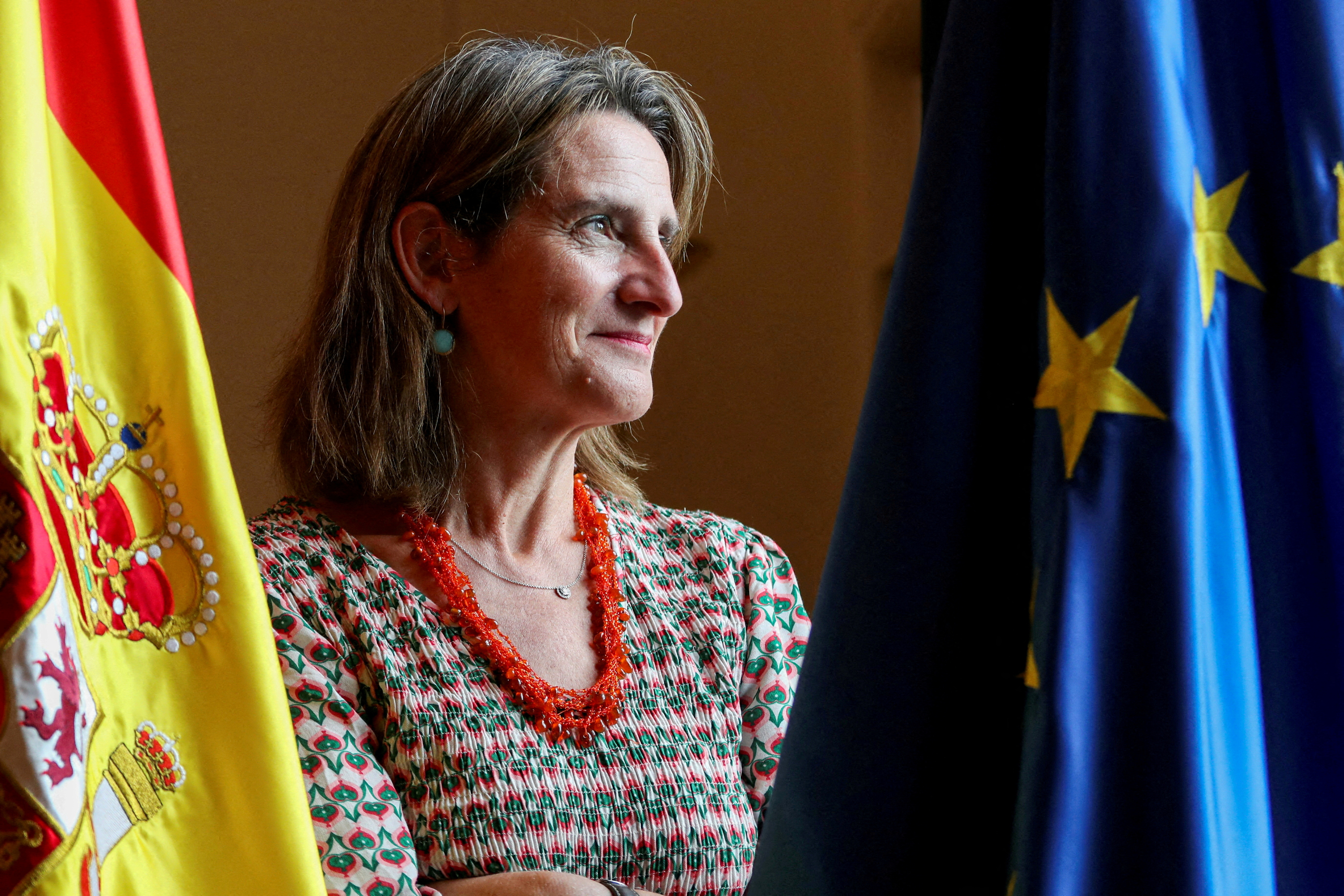European Union countries’ energy ministers struck a deal to reform power market subsidies, Spain’s energy minister said defusing a stand-off between France and Germany over the future competitiveness of industrial sectors.
The European Commission proposed changes to the EU’s electricity market in March after EU power prices soared to record levels last year as Russian gas supplies were cut following the invasion of Ukraine.
The new rules seek to shift to longer term, fixed-price contracts to protect consumers from volatile energy markets. They were also aimed at improving the investment climate for new renewable energy projects and in turn improve the bloc’s energy security.
The deal struck on Tuesday focused on a section of the law spelling out how state aid can be used to support power projects. Talks had stalled for months because of concerns, especially from Germany, that the scheme could distort competition and favour France, which has the world’s second biggest nuclear fleet after the U.S.
“It should help protect consumers against a future emergency and future crises. The most significant factor is that there was almost unanimity,” Spain’s Energy Minister Teresa Ribera told reporters. Only Hungary abstained.
A compromise proposal by Spain, which holds the EU’s rotating presidency and chaired Tuesday’s meeting, said future state aid for new renewable and nuclear power plants must take the form of “contracts for difference” subsidies based on a set price for energy.
These contracts guarantee a minimum price for energy produced but also allows governments to recover excess revenues if prices jump past a set threshold.
However, a preamble was added to the law that said governments can use such contracts for existing power plants when significant investments are made in the plant to expand its capacity or extend its life.
The preamble was a concession to France which wanted to be able to apply the new rules to its existing nuclear plants, which produce 70% of its electricity.
But in a nod to Germany, the proposals said the subsidies must be designed so that use of revenues raised, such as support for local industries, does not distort competition or trade in the EU.
Berlin had feared that France’s nuclear fleet would allow the country to offer fixed-price power contracts to its ageing nuclear energy fleet – then spend revenues generated by these government-backed contracts on subsidising industries.
“Despite great stress, we managed to do it together,” Germany’s environment and economy minister Robert Habeck said in a statement.
“With the new electricity market design … consumers in particular will benefit from the cheap production costs of non-fossil fuel energies. This is also important to ensure the transition to competitive prices in Europe.”
Germany, Europe’s biggest economy, is on the edge of a recession after losing access to the ample supply of cheap Russian gas it received before Moscow invaded Ukraine last year.
“The situation for European consumers was pretty delicate because … as a whole the gas price dictated the price of electricity without taking into account real production costs,” the French presidency said.
The agreement struck on Tuesday represents a “major victory for France”, it added, as its citizens to benefit from the competitive costs stemming from nuclear power.







Click here to change your cookie preferences